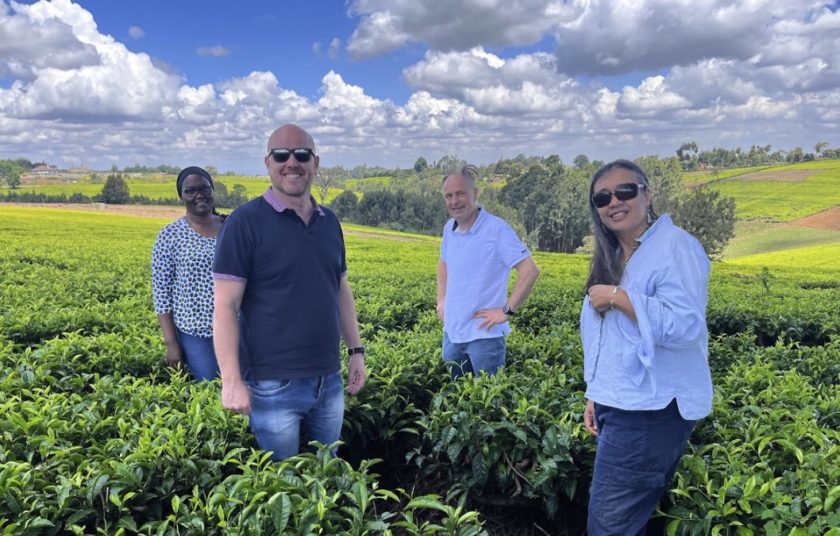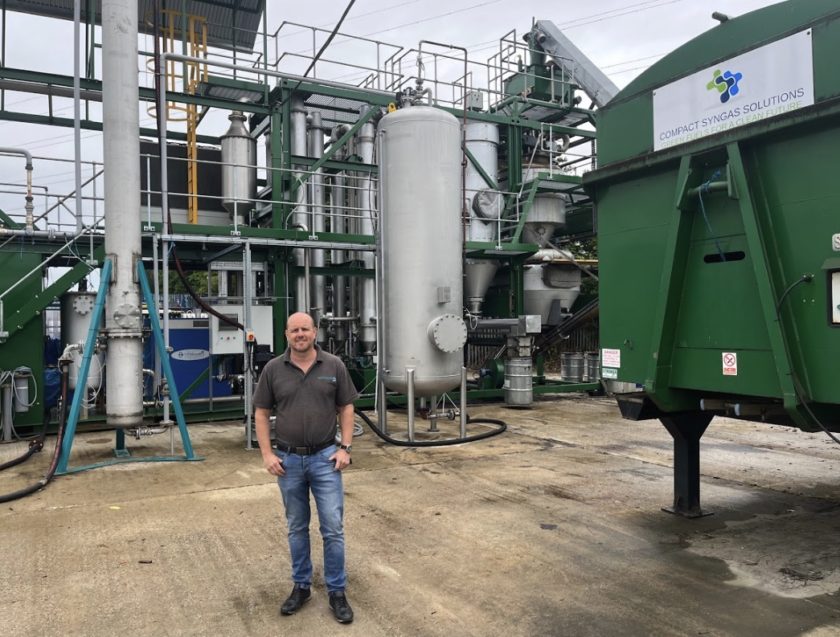Deeside firm to power Kenya farms with electricity from tea clippings

A Deeside-based firm is helping safeguard the British cuppa with a project that will use waste tea clippings to make greener power for Kenyan farmers.
Kenya, a leading producer of black tea, generates over £1 billion annually from its tea exports, a significant portion of which supplies the UK market.
However, the sector has been hampered by high energy costs and a notoriously unstable power grid, which disrupts operations daily.
Waste-to-energy company Compact Syngas Solutions’ pioneering approach involves an advanced gasification process that converts waste tea clippings and other biomass into a synthetic gas (syngas).
This syngas is then used as a cleaner burning fuel, dramatically reducing reliance on costly diesel and environmentally damaging wood burning.
CSS has developed an advanced gasification process that uses waste products to generate a syngas—a mix of hydrogen, methane, carbon dioxide, and monoxide.
The syngas can be burned as a greener fuel, saving up to 2.8 kg of carbon dioxide per litre of diesel, and up to 1.98 tonnes of carbon dioxide per tonne of fuelwood.
Carbonized biomass—for biochar—produced in the process can be applied to farmland to improve soil fertility and remove carbon dioxide from the atmosphere as part of a capture and storage scheme, reducing the climate footprint of tea or generating income from emissions trading.
Partners from the International Institute of Tropical Agriculture have quantified the removable stocks of tea pruning, identified supply chain operations and delivered costs to the factory, and built a model for assessing savings in energy bills and fuelwood demand.
In a proof-of-concept field trial, they found that recycling of biochar to plantations can boost tea yields by up to 23%, increasing fertilizer use efficiency and drought resilience.
Each 500 kWh plant will create jobs for up to ten skilled technical and operational workers, with an extra ten workers in fabrication and support. Some 300 jobs should be created in Kenya within the first five years.
Once the project has proved its success in Kenya, it will expand to Malawi, Uganda, and South Africa, before spreading across the world.

[Photo: Paul Willacy at the waste-to-hydrogen plant In Deeside]
CSS’s advanced gasification process generates syngas and hydrogen gas from waste products, including biomass like waste wood and other selected non-recyclable materials.
The Deeside-based firm recently secured almost £4 million in government funding to make its biomass and waste-to-hydrogen plants even greener by using carbon capture.
Paul Willacy, managing director of Compact Syngas Solutions, said, “Every year Brits drink millions of cuppas from Kenya, but the tea industry there is at risk from an unreliable and expensive power supply.”
“We’re going to provide energy security to the factories that process our tea, while reducing emissions, improving crop yields, and bringing jobs to the country.”
“We’re hugely excited about the impact this could have on the tea industry in Kenya and worldwide.”
Dr. Dries Roobroeck, technical lead at the International Institute of Tropical Agriculture, said, “We’re always looking for innovative ways to improve crop yields, protect farmer livelihoods, and create sustainable farming systems, and this project ticks all these boxes.”
“Gasification will also allow tea factories to reduce their carbon footprint and help global tea brands decrease their Scope 3 emissions.”
“More reliable electricity will improve the quality of the final product—so the benefits will be felt all the way across to the consumer”
[Main photo: Image: From left, Emily Mutindi Mutua of IITA, Paul Willacy of CSS, Niel Schulz from United Nations Industrial Development Organization, and Aarti Shah of IITA at a tea plantation in Limuru highlands, Kenya]
Spotted something? Got a story? Email: [email protected]
Latest News
